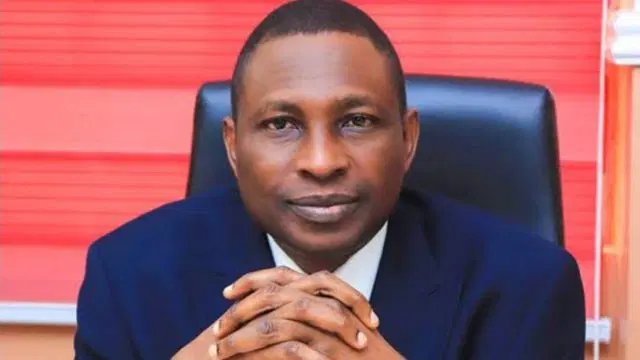July 9, 2025

EFFC Reveals Disclosure Of ‘Mind-Boggling’ Fraud At NNPCL.
The Chairman of the Economic and Financial Crimes Commission (EFCC), Ola Olukoyede, on Wednesday during the third day of the National Conference on Public Accounts and Fiscal Governance organized by the Public Accounts Committees of the Senate and House of Representatives in Abuja, revealed that a preliminary probe into the Nigerian National Petroleum Company Limited (NNPCL) has exposed a monumental level of corruption in the organization.
According to Olukoyede, EFCC had only just begun looking into the NNPCL’s books, but, early findings has already showed a “mind boggling corruption” in the system.
“In the last three weeks, we launched a commission-wide investigation into the extractive industry, particularly the oil and gas sector. What we have discovered is mind-boggling,” he went further to say, “And we have only just opened the books. If this is what we’re seeing at the surface, imagine what lies beneath.”
President Bola Tinubu had in April replaced Mele Kyari, who led the state-owned oil firm since 2019 with Bashir Ojulari, as Group Chief Executive Officer of NNPCL.
READ MORE; EFCC Arrests Former Akwa-Ibom State Governor Over Alleged N700B Fraud.
The EFCC chairman noted that the discoveries was a pointer to the enormous rot within the oil and gas sector, stressing that systemic fiscal mismanagement is a major contributor to Nigeria’s economic and security woes.
The EFFC boss, stressed that “There is a very strong connection between the mismanagement of our resources and insecurity. When you look at banditry, kidnapping, terrorism—trace it back, and you will find a pattern of corrupt practices and diversion of funds meant to improve people’s lives,”
Olukoyede urged the National Assembly to pass legislation that would criminalize illegitimate and unexplained wealth, stating that the current legal framework impedes the Commission’s ability to act swiftly against financial criminals.
He urged the house, “Help me pass the Unexplained Wealth Bill. I’ve been begging for the past year. This same bill was thrown out in the last Assembly. If we don’t make individuals accountable for what they own, we’ll never get it right.”
RED MORE; NNPCL’s Bid To Halt Dangote Refinery’s Suit Over Import Licence Dispute, Fails In Court.
He gave example of “Someone who has worked in a ministry for 20 years. We calculate their entire salary and allowances.
Then we find five properties two in Maitama, three in Asokoro. Yet we’re told to go and prove a predicate offense before we can act. That is absurd.”
Olukoyede, explained that the proposed bill would make it a strict liability offense for individuals to possess assets grossly beyond their known and legal sources of income.
He also revealed that the Commission is currently tracking illicit assets across several jurisdictions, including the U.S., Turkey, and, unexpectedly, Iceland.
“Last month alone, I visited four or five countries chasing Nigeria’s stolen assets. An ambassador even told me they discovered an estate in Iceland owned by a Nigerian. Iceland of all places!” he exclaimed.
He admitted, however, that no anti-corruption agency regardless of its strength can recover more than half of what has been looted.
READ MORE; Obasanjo Replies NNPCL Over Invite For Tour Of Refinery
“There is no amount of capacity I can build, no level of effort I can put in, that will enable me to recover even half of what has been stolen from Nigeria, because the custodians of those assets in foreign countries don’t want to let go,” he said.
Olukoyede criticised foreign governments that refuse to repatriate stolen Nigerian assets, labelling them as accessories to the crime.
“Under international law, the custodian of stolen assets is just as guilty as the original thief,” he said.
He emphasized that corruption is stifling Nigeria’s economy and development potential. He revealed that an internal EFCC analysis presented during his Senate confirmation showed that 90 per cent of stolen public funds in one year were moved abroad.
“Olukoyede called on citizens especially the political leaders to unite across plitical and ethnic divides to confront corruption.




